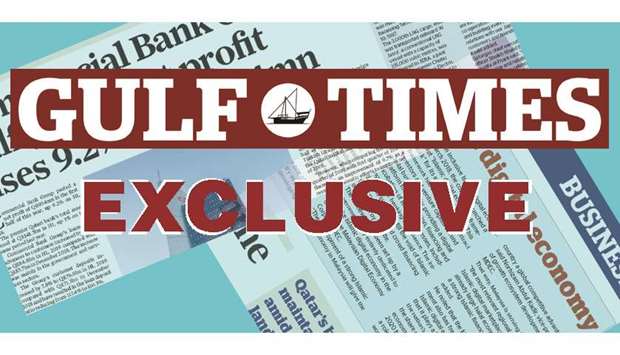The International Islamic Trade Finance Corporation (ITFC), an institution created in 2008 as a member of the Islamic Development Bank Group to support, promote and co-finance trade and development and improve living conditions and economic standards across the Islamic world, has just published a new report which shows it approved a total of $5.8bn in financing last year for member countries of the Organisation of Islamic Co-operation (OIC), of which around $5bn so far have been dispersed.
According to the report, entitled “Feeding the Planet: Annual Development Effectiveness Report 2019,” the approved funding was at a record volume and 12% higher than in the previous year. Around 80% of the funding was contributed by partner banks and financial institutions of developed member countries. It brought the entire trade financing volume by the ITFC for OIC countries to $51bn since the body’s inception. The numbers came amid a “challenging global economic context” with global trade growth for 2019 constrained by rising trade tensions and a sluggish global economy, the ITFC noted, while the price of key commodities, namely fossil fuels and agricultural produce, were on a downward trend due to a decreasing global demand which had both advantages and disadvantages for cross-border trade in terms of costs.
Since the past few years, the ITFC has set a particular focus on combining trade finance with impact investing and the funding of sustainable projects, according to its CEO Hani Salem Sonbol.
The ITFC has been mainly focusing on OIC member countries in Asia and Sub-Saharan Africa last year with the aim of making global value chains more purposeful in the role they play in reducing rural poverty and ensuring food security. Last year, the funds spent on Asian member countries of the OIC stood at $2.6bn, while in African OIC countries, total disbursements amounted to $2.4bn.
Most of the financing went into the energy sector, the ITFC said. Around $3.7bn were spent for imports of fossil fuels, including 1.5mn metric tonnes of liquefied natural gas, mainly to support development and trade in vital sectors such as agriculture, construction, power and transportation. Apart from that, the funds were used to provide better access to energy for 13mn people.
For projects in the food and agriculture sector, including food imports and agriculture initiatives such as best farming practices with the aim of boosting incomes for over 500,000 farmers, $755mn were disbursed, while an additional amount of $290mn was given to cotton and groundnuts producers in West Africa to improve their farming and trade capabilities. Food imports included 1.3mn tonnes of wheat and 260,000 tonnes of rice, among other basic staples. For the development of small and medium enterprises, the ITFC supported around 120 regional firms with a total of more than 45,000 staff with affordable loans and training valued at several hundred millions in order to enhance their access to trade finance.
In addition, the ITFC is also working on improving financial literacy in its target countries. Last year, it held about a dozen training courses in Islamic finance, particularly in Central Asia, the report said. The trainings were delivered by well-known Islamic finance experts and designed to provide a thorough understanding of Islamic banking and finance, give an overview of existing financial products, explain how Islamic financial institutions operate and elaborate on the main differences between conventional and Shariah-compliant finance. In Uzbekistan, 12 local financial institutions took part in such trainings, while in Turkey, the ITFC hosted trainings for representatives of central banks from Azerbaijan, Kazakhstan, Kyrgyzstan, Tajikistan, Uzbekistan and Afghanistan.
Furthermore, the ITFC last year signed framework agreements on trade financing commitments worth $4.8bn with nine countries, namely Uzbekistan, Mali, Niger, Djibouti, Maldives, Tajikistan, Kyrgyzstan, Suriname and Senegal and mobilised $1.2mn in donations for trade development projects from resources within the Islamic Development Bank from and other donors, such as the Enhanced Integrated Framework, a multi-donor programme promoted by the World Trade Organisation and the Organisation for Economic Co-operation and Development, as well as the Arab Bank for Economic Development in Africa and other non-traditional partners such as think tanks and various charitable foundations.

